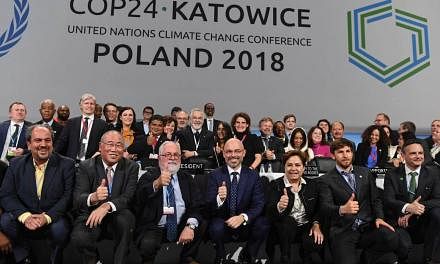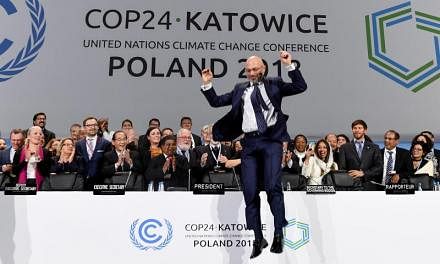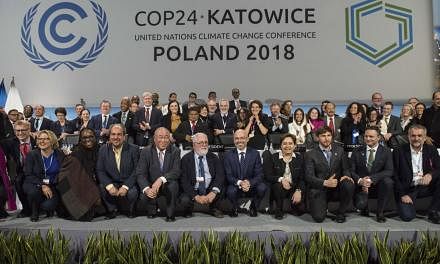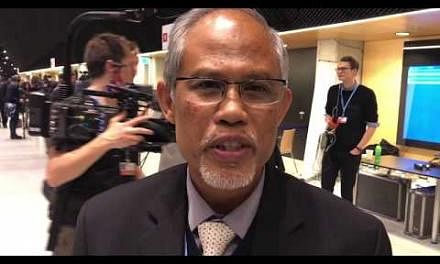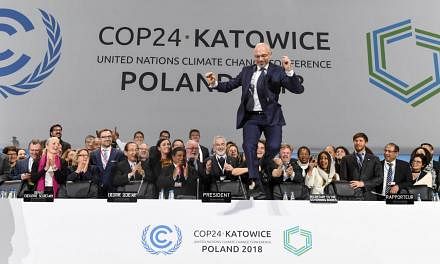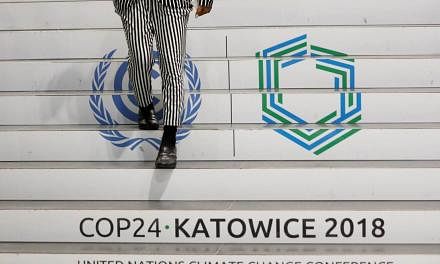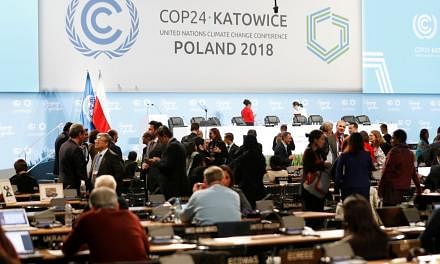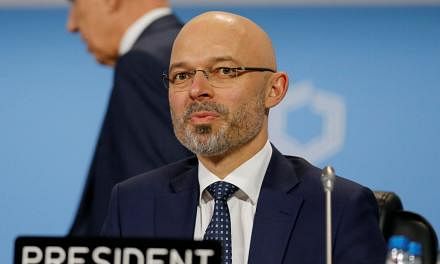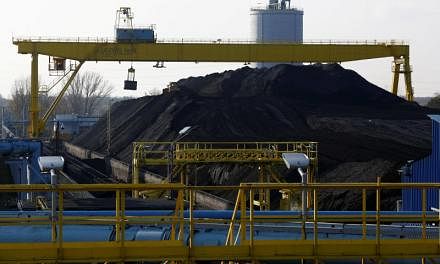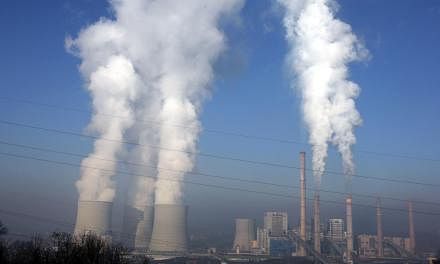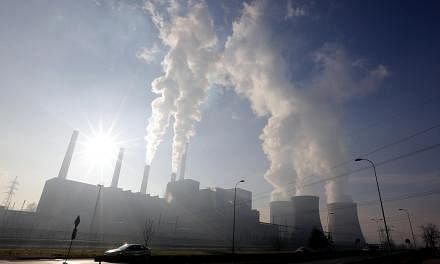KATOWICE (Poland) • China accused some of the richest countries in the world of backsliding on pledges to clean up greenhouse gas pollution and provide US$100 billion (S$137 billion) a year in climate-related aid by 2020.
The comments at a United Nations conference on global warming in Poland spearheaded a push by a group of 49 Least Developed Countries (LDCs) for clarity on when those promises will be fulfilled. It indicated deepening tensions as the talks that were due to conclude in the industrial city of Katowice yesterday were likely to continue today.
Mr Xie Zhenhua, China's lead envoy to the talks in Katowice, said at a briefing on Thursday that there are still quite a number of developed countries which have not started providing the financial and technological support they had pledged in the Paris Agreement three years ago.
"We cannot accept any backsliding," he added.
The remarks emphasised the divide on environmental issues between China and the United States, which had worked together to seal the landmark deal in Paris in 2015. Since then, President Donald Trump vowed to pull out of the deal and worked to boost use of coal, the most polluting fossil fuel.
Envoys from almost 200 nations have been working on the rules to implement the Paris deal, and have run into friction on a number of issues that are always contentious in the talks: Industrial nations remain about US$30 billion short of their pledge to ramp up climate-related aid to US$100 billion a year by 2020.
Developing nations are resisting measures that would ensure transparency in the way greenhouse gas emission cuts are measured, reported and verified.
They want different rules to apply to rich and poor nations, reflecting their varying capabilities.
The LDC group and China were joined by the 40-nation Alliance of Small Island States in calling for a "strengthening global response" to climate change, including a measure that "scales up finance". Business leaders attending the talks expressed concern that the Katowice rule book, which is supposed to emerge from the talks, will be too vague to serve as a guide for how they should cut their own emissions.
"We do need the rule book because that will reduce the risk that we have and increase the number of regions where we can invest in," said Mr Carlos Salle, an official following the talks for Iberdrola SA, Spain's largest utility.
For his part, Mr Xie said he was "disappointed in the US withdrawing from the Paris Agreement".
"The United States has been an important player in the process," he added. "We would welcome them back to the climate change arena."
He sidestepped a question on whether China would support the call by the coalition of small island and least-developed states for all countries to raise their carbon-cutting ambitions before 2020.
BLOOMBERG, AGENCE FRANCE-PRESSE
